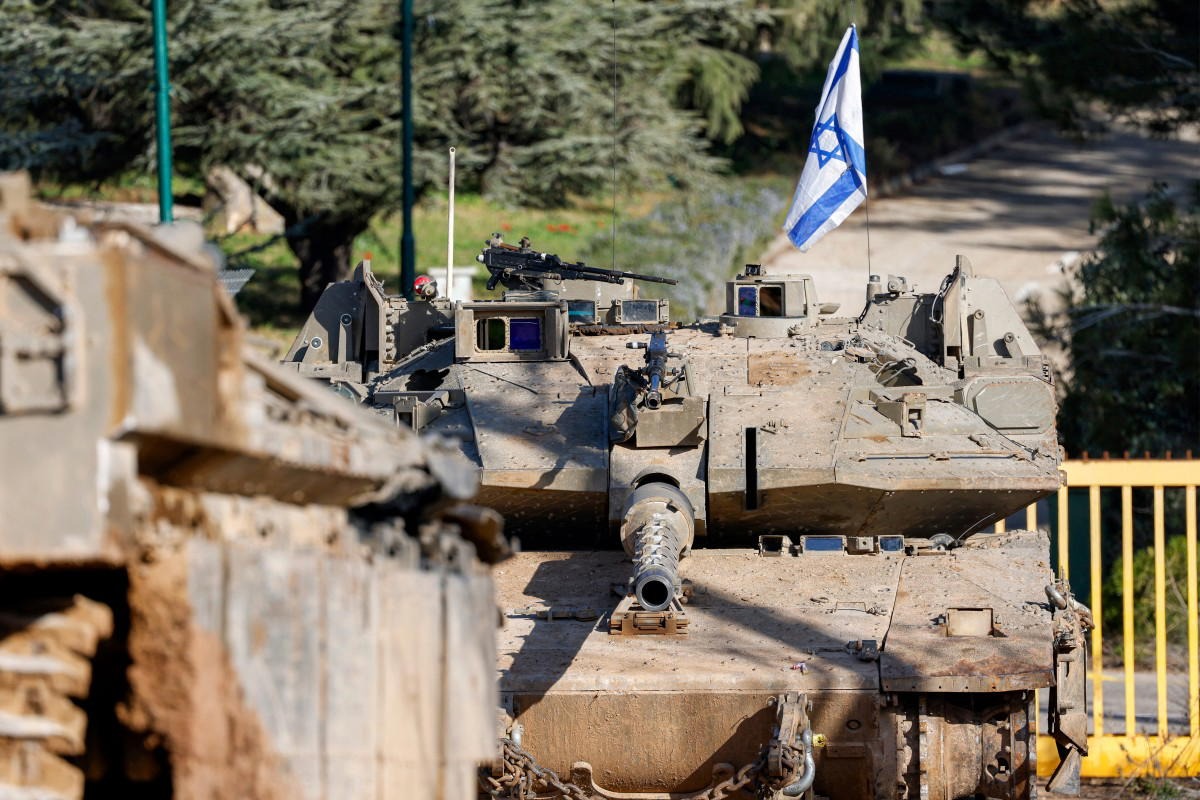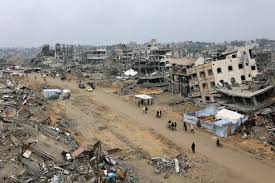Israel conducted deadly strikes on Lebanon Saturday in response to a rocket attack from across the border, as militant group Hezbollah denied responsibility for the launch.
Lebanon’s official National News Agency reported one girl among two killed in an Israeli strike on the southern town of Touline, during the largest escalation since a November 27 ceasefire.
The Israeli army said six rockets, three of which were intercepted, were fired from Lebanon into northern Israel, setting off air raid sirens in the region for the first time since November.
“Hezbollah denies any involvement in the rocket fire from southern Lebanon into the occupied Palestinian territories (Israel),” the Iran-backed group said in a statement, calling Israel’s accusations “pretexts for its continued attacks on Lebanon”.
Hezbollah said that it stands “with the Lebanese state in addressing this dangerous Zionist escalation on Lebanon”.
While Hezbollah has long held sway over areas of Lebanon bordering Israel, other Lebanese and Palestinian groups have also carried out cross-border attacks.
Lebanese Prime Minister Nawaf Salam warned that renewed military operations on the southern border risked “dragging the country into a new war,” his office said.
But Israeli defence chiefs said they held the Lebanese government responsible for all hostile fire from its territory regardless of who launched it.
Analysts have said the weakening of Hezbollah during its war with Israel enabled Lebanon’s long-deadlocked parliament to in January name army chief Joseph Aoun as president, with backing from the United States, Saudi Arabia and others.
Upon taking office, Aoun pledged to usher in a new era in which the Lebanese state would have a “monopoly on weapons”.
“We cannot allow fire from Lebanon on Galilee communities,” Israeli Defence Minister Israel Katz said, referring to towns and villages in the north, many of which were evacuated after Hezbollah began firing on Israel in support of Hamas in October 2023.
“The Lebanese government is responsible for attacks from its territory. I have ordered the military to respond accordingly,” Katz said.
NNA said Israeli air strikes and shelling had targeted several areas of the south.
One strike killed two people including a girl in Touline, NNA reported after earlier saying Israeli strikes wounded two people several kilometres (miles) further east in the border village of Kfar Kila.
– UN ‘alarmed’ –
The United Nations peacekeeping force in southern Lebanon said it was “alarmed by the possible escalation of violence” following the morning’s rocket fire.
“We strongly urge all parties to avoid jeopardising the progress made, especially when civilian lives and the fragile stability observed in recent months are at risk,” it said.
Hezbollah has long had strongholds in south and east Lebanon, as well as south Beirut, but the war with Israel dealt the group devastating blows, including the killing of longtime chief Hassan Nasrallah.
Under the ceasefire, Hezbollah is supposed to pull its forces back north of the Litani River, about 30 kilometres (20 miles) from the Israeli border, and dismantle any remaining military infrastructure in the south.
Israel is supposed to withdraw its forces across the UN-demarcated Blue Line, the de facto border, but has missed two deadlines to do so and continues to hold five positions it deems “strategic”.
Israel has carried out repeated air strikes during the ceasefire, targeting what it said were Hezbollah military sites that violated the agreement.
The Lebanese army said it had dismantled three makeshift rocket batteries in an area north of the Litani on Saturday.
The mayor of the Israeli border town Metula, across from Kfar Kila, urged the authorities to “act offensively and make it so that not one bullet is fired ever again at northern communities”.
Metula was targeted by the rockets.
– Seven ‘martyred’ in Gaza –
Saturday’s flare-up came five days into Israel’s renewed offensive against Hamas militants in Gaza, which shattered the relative calm since a January 19 ceasefire there.
On Saturday in Gaza City, Sameh al-Mashharawi said “seven people were martyred” in a strike on his family’s house that killed his two brothers, their children and wives.
Israel’s defence minister said Friday that he had ordered the army to “seize more territory in Gaza”.
“The more Hamas refuses to free the hostages, the more territory it will lose, which will be annexed by Israel,” Katz said.
The White House said Israel consulted US President Donald Trump’s administration before launching its Gaza strikes. Israel said it “fully coordinated” with Washington.
Hamas took issue Saturday with Washington’s characterisation of its position, insisting that it stood ready to release all its remaining hostages as part of a second stage of the ceasefire.
“The claim that ‘Hamas chose war instead of releasing the hostages’ is a distortion of the facts,” the group said.
When the first stage of the ceasefire expired early this month, Israel rejected negotiations for the promised second stage, calling instead for the return of all its remaining hostages under an extended first stage.
That would have meant delaying talks on a lasting ceasefire, and was rejected by Hamas as an attempt to renegotiate the original deal mediated by the US, Qatar and Egypt.


